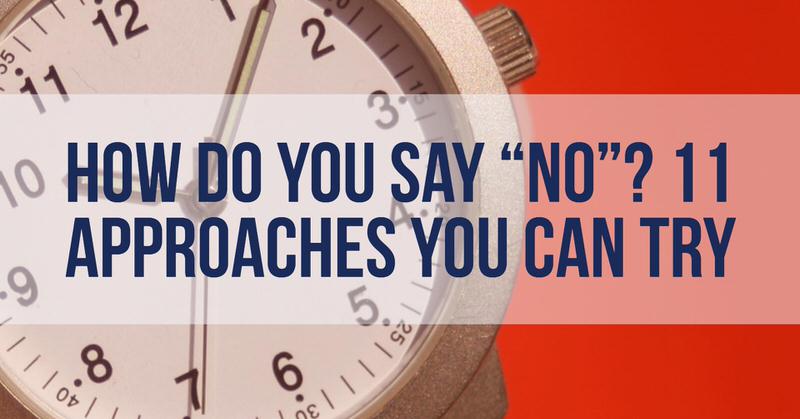The Career Series: How do you say “no”? 11 approaches you can try
 This is sometimes really difficult to do gracefully, tactfully and indeed, successfully! It is also a really great time management technique, and for all that we like to say “yes”, and piirus.ac.uk is all about networking and collaborative research, we do know that sometimes you have to say “no.” I really like this post from the Athene Donald blog on this topic, and I pulled out a list of ways to say “no” from that post, below:
This is sometimes really difficult to do gracefully, tactfully and indeed, successfully! It is also a really great time management technique, and for all that we like to say “yes”, and piirus.ac.uk is all about networking and collaborative research, we do know that sometimes you have to say “no.” I really like this post from the Athene Donald blog on this topic, and I pulled out a list of ways to say “no” from that post, below:

‘I think the workload model already shows I am contributing far more hours than the departmental mean so I won’t accept at this time’

If the department wants to see my research progress this is not the right time for me to take this on.’ (You can substitute “research progress” for whatever is the agreed priority in your field of work.)

When arguments are presented, state flatly a This is an unreasonable request.’

When about working with someone else: aI have not always found X works collegially’, or escalate to aI am not prepared to work with X’ and accept consequences.

Set limits and stick to them: aI’m sorry, I have already done N talks this year and that’s my limit’

Suggest that they contact someone else who might be more suitable.
A comment there also highlighted that it’s easier to say “no” in writing than face to face. If that’s true for you then you can always say “That’s really interesting, can you let me think about it: I’ll get back to you by email by the end of the week.” And then you have the option of saying “no” in writing! You can also put the onus back onto the requester to explain more in an email to you, which you will then reply to.
In the scenarios above, the difficulty is with saying “no” is that it is to someone senior and in a position of power. A request from a colleague or potential client is a different scenario: colleagues are people who you are probably expected to build a working relationship with. And for those in academia, requests from strangers in your sector are almost the same thing, as you never know who you might be working with in future! Here are some more ways to say “no” that you can try using!
 I appreciate the offer but must say no. Thank you for your email/time/approach.
I appreciate the offer but must say no. Thank you for your email/time/approach.

I’m flattered/honoured that you ask, but I’m unable to take this work on. I hope that you are able to find someone with the time/energy/commitment that your project deserves.

Regretfully, I must decline this opportunity as I simply don’t have the time/expertise/capacity to do it justice. However I would like to wish you all the best with…

My work schedule is full to capacity for the foreseeable future, so I must say no. Thank you for your understanding.
 I’m very sorry but I am unable to take this project on. I would have enjoyed being a part of it and it sounds like very interesting/valuable work but I must say no, owing to my existing commitments. I wish you the highest success with this project.
I’m very sorry but I am unable to take this project on. I would have enjoyed being a part of it and it sounds like very interesting/valuable work but I must say no, owing to my existing commitments. I wish you the highest success with this project.
My final tip: if you give your reasons then they might sound like excuses, but also the person requesting might helpfully remove those barriers for you. So if you really mean “no”, then perhaps that’s all you need to say…
 This article was originally published at piirus.ac.uk by Jenny Delasalle and was republished with permission.
This article was originally published at piirus.ac.uk by Jenny Delasalle and was republished with permission.
